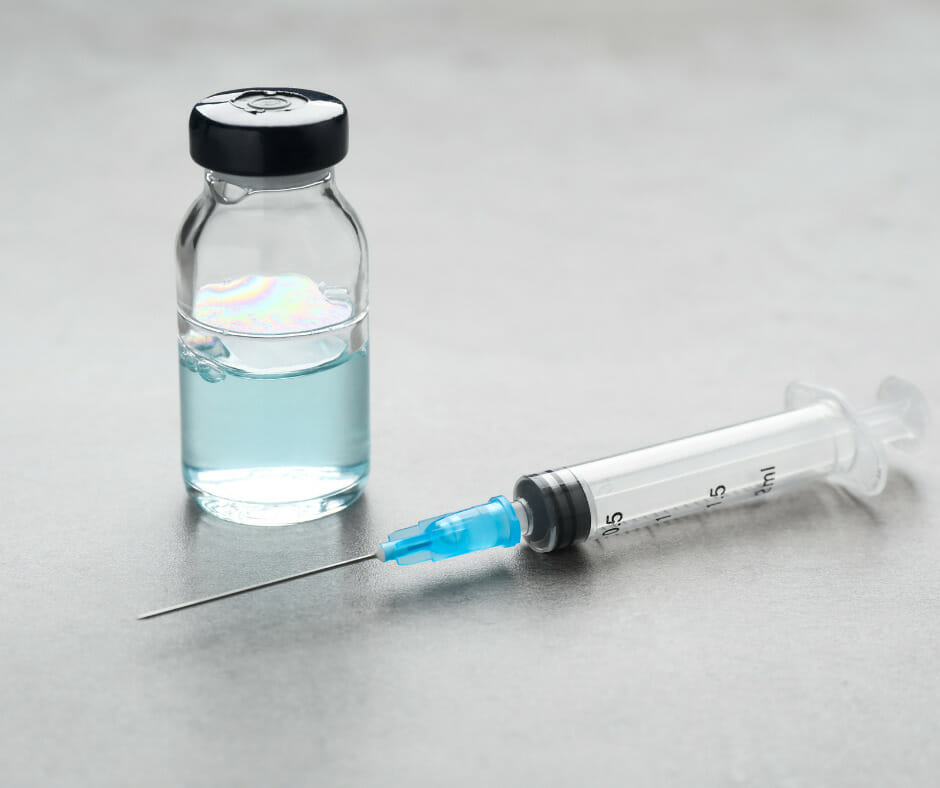Ketamine is an anesthetic drug used in medical settings such as operating rooms and emergency rooms. However, it has also become a popular recreational drug due to its hallucinogenic effects.
Unfortunately, these effects can be highly addictive and lead to long-term health problems if not addressed. Fortunately, there are numerous treatment options available to help those struggling with ketamine addiction.
Let’s take a look at some of the most common treatment options for ketamine addiction.

What is Ketamine
Ketamine is a synthetic chemical most commonly known as a general anesthetic used for surgical procedures. However, it has become increasingly popular in the illicit drug market, and its use has grown exponentially in recent years.
Its affordability and disorienting effects, ranging from mild to extreme hallucinations and out-of-body experiences, have drawn people of all ages to experiment with the drug recreationally.
Unfortunately, this experimentation often leads to ketamine addiction and tolerance – many who regularly abuse this substance struggle for years trying to fight cravings for higher doses and more frequent use.
The problem of ketamine addiction is becoming more widespread nationally, the Centers for Disease Control report that approximately 5 million US citizens have used ketamine non-medically since 2019, with one in eight people developing an addiction to the substance.
Treatment Options for Ketamine Addiction

Ketamine addiction is a troubling reality for many. Fortunately, there are ketamine addiction treatment options, including rehab services and therapy, to help people struggling with this drug overcome their addiction.
Inpatient Rehab
Inpatient rehab can be a critical step towards helping someone fully overcome ketamine addiction; it allows individuals to focus exclusively on their recovery, free from necessary outside life stressors or triggers that could lead them back into a cycle of drug use.
Inpatient rehab is typically recommended for people with the most severe form of ketamine addiction, or those who have been unable to maintain sobriety through other forms of treatment.
This type of addiction treatment typically lasts one to three months, and patients stay in a residential, clinical setting the entire time. Patients receive 24-hour care and supervision, both from doctors and counselors, in order to help them overcome ketamine addiction.
Partial Hospitalization Rehab
Part hospitalization rehab is recommended for those suffering from moderate-level Ketamine addiction who are well-motivated and capable of adhering to a structured routine outside of inpatient care. Lantana Recovery offers a partial hospitalization program for ketamine addiction.
It entails visiting a rehab facility at least 5 times a week and is approximately three months long. Part-hospitalization rehab is ideal for those who need the benefits of inpatient care but cannot afford to take a break from their regular life.
Starting with a brief evaluation process, these programs allow medical professionals to create an addiction profile that includes insight into a patient’s medical and mental health needs as well as any previous interventions they may have had.
Patients are then guided through medically monitored detox by a team of doctors and therapists to help protect against any physical or psychological issues that could arise just after the drug is cleared out of their systems.
Following this, they’ll receive individualized therapy with an emphasis on relapse prevention and learning coping mechanisms to ensure future success even long after their rehabilitation has been completed.
Intensive Outpatient Rehab
An intensive outpatient rehab program for ketamine addiction can be a great option for those who are looking to recover from their addiction in a structured and supportive environment. Lantana Recovery offers outpatient rehab services for ketamine addiction.
The scope of these programs varies but generally provide sessions a few times per week for about three hours at a time that can include individual, group, and family therapy. By attending an intensive outpatient rehab program, individuals with early stages of ketamine addiction can receive the necessary support whilst still maintaining work or daily commitments.
It is important to discuss treatment options with a mental health professional when considering an intensive outpatient rehab program so you can make sure you have the best chance at successful long-term recovery.
Outpatient Rehab
This type of rehab allows individuals to live at home or in another designated environment like sober living, but receive regular counseling and therapy sessions that are designed to help them overcome their addiction and create positive behaviors.
It is recommended primarily for those struggling with mild-to-moderate levels of ketamine addiction, as well as those who find it difficult to commit to an extended stay at an inpatient center due to personal or professional obligations.
This level of rehab usually consists of working with a therapist and/or counselor on a regular basis, setting up an appropriate support system, learning techniques to cope with cravings and other triggers associated with ketamine addiction, and developing healthy habits.
It can also be beneficial for people who have a strong support system at home and for those living in rural or remote areas, who may not have easy access to traditional inpatient rehabilitation centers.
Outpatient programs can offer flexibility while also giving patients access to quality care and the latest techniques for battling their addiction.

Ketamine: Dependence vs. Addiction
Ketamine dependence occurs when a person feels the need to use a substance or engage in a behavior in order to cope with daily life. The dependence is often physical and can create feelings of anxiety and irritability if the individual is unable to access the substance or activity.
On the other hand, ketamine addiction is an even stronger state of compulsive behavior that involves frequent and excessive use of a substance or engagement in a behavior despite negative consequences. Addiction is not only characterized by physical dependence on the substance but also involves psychological attachment as well.
A person who is addicted will find it difficult to resist cravings, feel pleasure while engaging in the behavior and continue to do so despite any negative outcomes. This means that addiction goes beyond simply being dependent on something because there are more powerful psychological motivations behind it.
Thus, while dependency may lead to addiction, the two are not necessarily synonymous.

Ketamine Addiction Symptoms
If suspect that you or someone you know is getting addicted to ketamine, here are some symptoms to be aware of the following physical and psychological symptoms:
Physical Symptoms
The physical symptoms of ketamine addiction can vary depending on the individual, however, some common signs to look out for include:
- Fatigue
- Sweating
- Increased heart rate
- Elevated blood pressure
- Loss of appetite and weight loss
Additionally, some users may struggle with chest pain if they are abusing high doses of the drug and have consumed it in a short amount of time. Other physical symptoms that can occur when someone is struggling with an addiction to ketamine include changes in vision, dizziness or confusion, and muscle weakness.
Psychological Symptoms
In addition to the physical effects of ketamine abuse, there are also psychological effects that come along with it as well. The most common psychological symptoms associated with ketamine abuse include anxiety and depression due to the intense feelings of dissociation from reality that comes with using the drug.
Users may start to experience extreme mood swings or experience feelings of paranoia or depersonalization when using ketamine for prolonged periods. Additionally, long-term use can lead to cognitive impairments such as memory problems and difficulty concentrating which can make everyday tasks very difficult or impossible.
More serious psychological issues like psychosis have also been reported in extreme cases where individuals have abused large amounts over a long period of time.

Diagnosing Ketamine Addiction
Diagnosing ketamine addiction in someone else can be difficult, as the signs and symptoms may not be obvious to an outside observer. Those with ketamine addiction may begin to display changes in physical appearance or behavior, such as weight loss, increased tolerance for pain, slurred speech, or lack of coordination.
They may avoid regular social interactions and spend large amounts of time alone. In addition, they may show signs of disorientation, hallucinations, or hostility when confronted.
Moreover, any incident of ketamine overdose is a telltale sign that someone is addicted to ketamine or has developed a high tolerance for the drug.
To properly diagnose ketamine addiction in someone else, it is important to closely monitor their behavior over observed time and speak with any individuals that have a relationship with them in order to detect any changes or unusual patterns in habits or daily activities.
Ketamine Addiction Treatment Options in South Carolina
South Carolina residents suffering from ketamine addictions have a range of treatment options available to them including Lantana Recovery rehab center. Many local organizations and rehab facilities offer comprehensive care for ketamine use disorder, including a variety of counseling services, group support programs, and medical interventions.
Ketamine Rehab in Charleston
In the city of Charleston, there are a number of specialized rehab centers which provide comprehensive services to individuals struggling with ketamine addiction. Rehab centers like Lantana Recovery in Charleston focus on ketamine addiction and offer a variety of treatments such as cognitive behavioral therapy, individual and group counseling, medication management, and family therapy.
These respected addiction treatment facilities also provide resources such as education about substance use disorders, recovery skills training, relapse prevention techniques, and other support services.
Ketamine Treatment for Greenville Residents
For those living in Greenville, SC there are various rehab programs available that focus on helping individuals address their addiction issues. Depending on the particular facility’s approach to treatment, some options include detoxification services (if necessary) along with evidence-based psychotherapy.
Lantana Recovery extends ketamine addiction treatment services to local Greenville residents. In addition to clients receiving treatment in Charleston, they will gain access to social support groups where they can connect with others who are going through similar experiences while engaging in meaningful recovery activities like peer mentoring or recreational activities.
Ketamine Drug Treatment Services for Columbia Residents
In Columbia, SC residents have access to a number of drug treatment service providers that specialize in ketamine addiction treatment. These facilities may provide both outpatient and residential programs depending on the severity of the case.
Lantana Recovery extends addiction treatment to Columbia locals struggling with ketamine addiction. At Lantana Recovery’s rehab center in Charleston, clients are given top-tier care. This individualized attention is based on assessments conducted by our staff, who are experts in diagnosing substance use disorders and deciding the suitable care levels.
Such evaluations often include medical assessments and psychological evaluations which help inform clinicians to develop an appropriate treatment plan tailored to meet the needs of each individual client.
Ketamine Addiction: Long-Term Effects
Ketamine is a powerful anesthetic and hallucinogenic drug that has grown in popularity, especially among young people. While it can provide a strong sense of euphoria and relaxation, there are potentially serious long-term effects of ketamine addiction.
Cognitive Impairment
Those who become addicted to ketamine may experience cognitive impairment, including difficulty with accessing memories and learning new information. Long-term ketamine abuse can lead to permanent damage to the brain’s ability to learn and remember.
Hallucinations
Chronic ketamine users may begin to experience intense hallucinations, which may include auditory or visual sensations that do not exist in reality. These hallucinations can be extremely frightening and may last for several hours at a time.
Paranoia
Prolonged use of ketamine can lead to paranoia, where an individual will have irrational fears and mistrust of others around them. In extreme cases, this paranoia can become disabling, making it difficult for the person to interact with those around them.
Anxiety
Long-term use of ketamine has been linked to increased levels of anxiety and depression in users. This anxiety is often accompanied by feelings of restlessness and fear that does not go away easily.
Physical Health Problems
Prolonged abuse of ketamine can lead to physical health problems such as kidney damage, irregular heartbeat, and high blood pressure. Additionally, individuals who abuse ketamine may be more prone to developing respiratory illnesses due to impurities within the substance being inhaled or injected into their system.
Social Issues
People who are addicted to ketamine often struggle with social issues such as isolation from family and friends or difficulty finding employment due to their drug abuse habits. Furthermore, regular use of the drug can lead them towards more dangerous activities such as violence or theft in order to obtain more drugs for consumption.
Ketamine Treatment FAQs
Can I go to detox for Ketamine addiction?
Yes, you can go to detox for Ketamine addiction to ensure safe withdrawal from the drug. Detox at a treatment facility can provide medical supervision and support to ensure the safety and comfort of the individual going through withdrawal.
Can I attend inpatient rehab for Ketamine addiction?
Yes, you can attend inpatient rehab for Ketamine addiction if your healthcare provider strongly recommends it and if you can financially cover its cost.
Can I enroll in outpatient rehab for Ketamine addiction?
Yes, you can enroll in outpatient rehab for Ketamine addiction if your doctor deems it appropriate after a careful assessment of your situation.
Can I Overdose on Ketamine?
Yes, you can overdose on Ketamine. The risk of a potential overdose increases significantly with continued use.
Final Thoughts on Ketamine Addiction Treatment:
Ketamine addiction is a serious problem that can lead to many health complications if left untreated. Fortunately, there are many treatments available to help those suffering from this condition get back on track and live a healthy life again.
Rehabilitation programs that focus on treating both physical and psychological symptoms of ketamine addiction through intensive therapy and medication-assisted treatment (MAT) help reduce cravings and withdrawal symptoms and increase the chances of long-term recovery.
If you or someone you know is struggling with a ketamine addiction, don’t hesitate to seek professional help today! Call Lantana Recovery for help with ketamine addiction.





